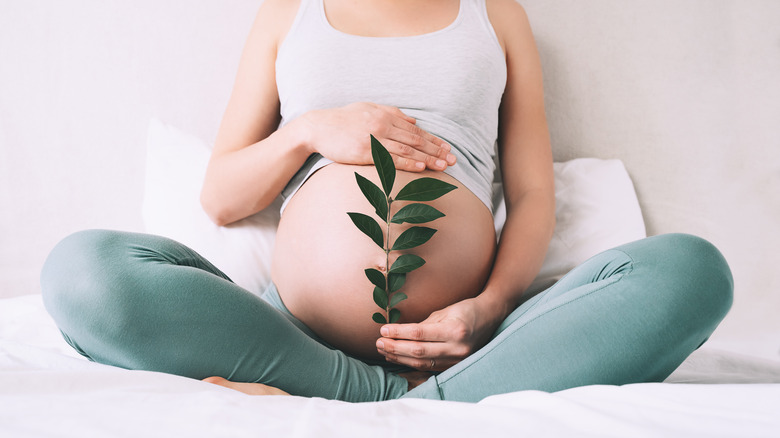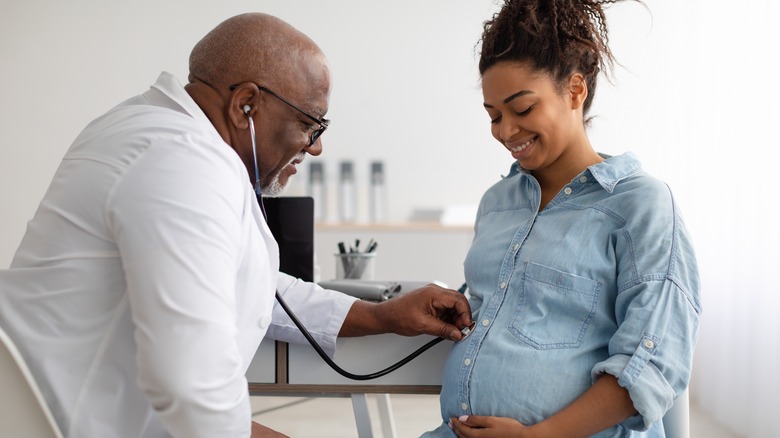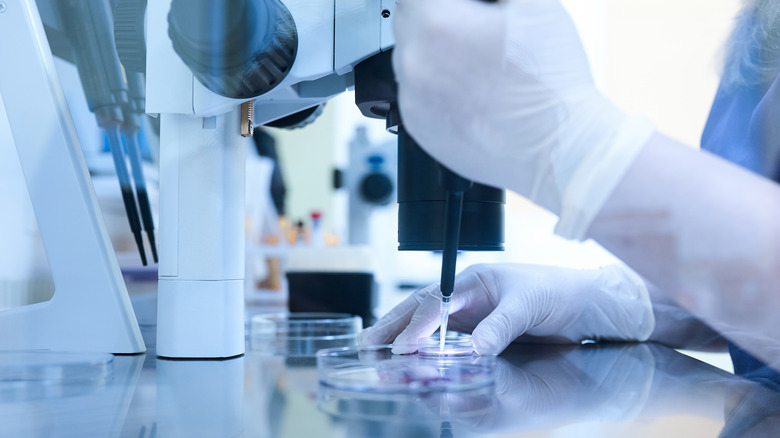The Difference Between IVF Cycles And Menstrual Cycles
IVF, or in vitro fertilization, is a process in which conception happens outside of the uterus. An egg is taken from a woman and introduced to sperm in a petri dish in the hopes of fertilization happening. Then the waiting game begins. If all goes well, the fertilized egg now at the stage of an embryo — is then taken from the petri dish and injected into the hopeful mother's uterus. The goal is for the embryo to attach itself to the uterus and grow into a beautiful baby, via Northern California Fertility Medical Center.
Are you considering undergoing IVF? You're not alone. The popular procedure is being used by more and more women around the world who need help with conception for a number of different reasons, including female infertility.
It's a long, complex process that can be full of ups and downs. But, at the end of it all, the outcome is truly worth it. The parents-to-be must pay close attention to every single stage of IVF in order to have a successful pregnancy. This includes the IVF cycle which is different from your menstrual cycle.
IVF cycles require medication
One of the main differences between a menstrual cycle and an IVF cycle is where the possible fertilization of the egg will occur. During the menstrual cycle, so much happens to your body. Your ovaries will release mature eggs that are ready for fertilization into your fallopian tubes. If fertilization doesn't occur, the eggs will be absorbed back into your body. During an IVF cycle, these mature eggs are collected from a woman's body and placed into a petri dish. Sperm is introduced and if all goes well, fertilization will occur, and a baby will be on its way, via Genetics & IVF Institute.
The first step of the menstrual cycle also differs from the IVF cycle. While the menstrual cycle begins by natural means of our bodies, an IVF cycle is usually introduced by means of medication so that women will begin in what is known as the "baseline stage." This medication is meant to prevent a woman from ovulating. The Genetics & IVF Institute says this is important for two reasons: one, doctors can't get to the eggs if they've already left the ovary, and two, ovulation exposes multiple eggs to sperm which could potentially put you at risk of facing "high-order multiple-gestation" and increases your chances of having multiple babies if you have sexual intercourse.
IVF cycles last longer
Think you get some awful headaches on your period or other symptoms you could live without? Then you might groan in dismay when you read this next bit of info: IVF cycles usually average around three months from start to finish. Compare this to the monthly visit we get from Mother Nature.
Yes, IVF cycles are around three times longer than an average menstrual cycle. The reason for the length? It's all about timing. According to the Northern California Fertility Medical Center, every step of the process must be synced to match the menstrual cycle. The embryo must be allowed to mature for the exact time it's needed before it's implanted into the uterus. After that, you'll be monitored carefully to see if the implantation was a success and you are now on your way to motherhood.
During this time, patients are usually introduced to plenty of medication to assist in the proper timing of the stages of pregnancy. You'll most likely be feeling a little crazy during your IVF cycle which, we guess, doesn't differ that much from a menstrual cycle.


